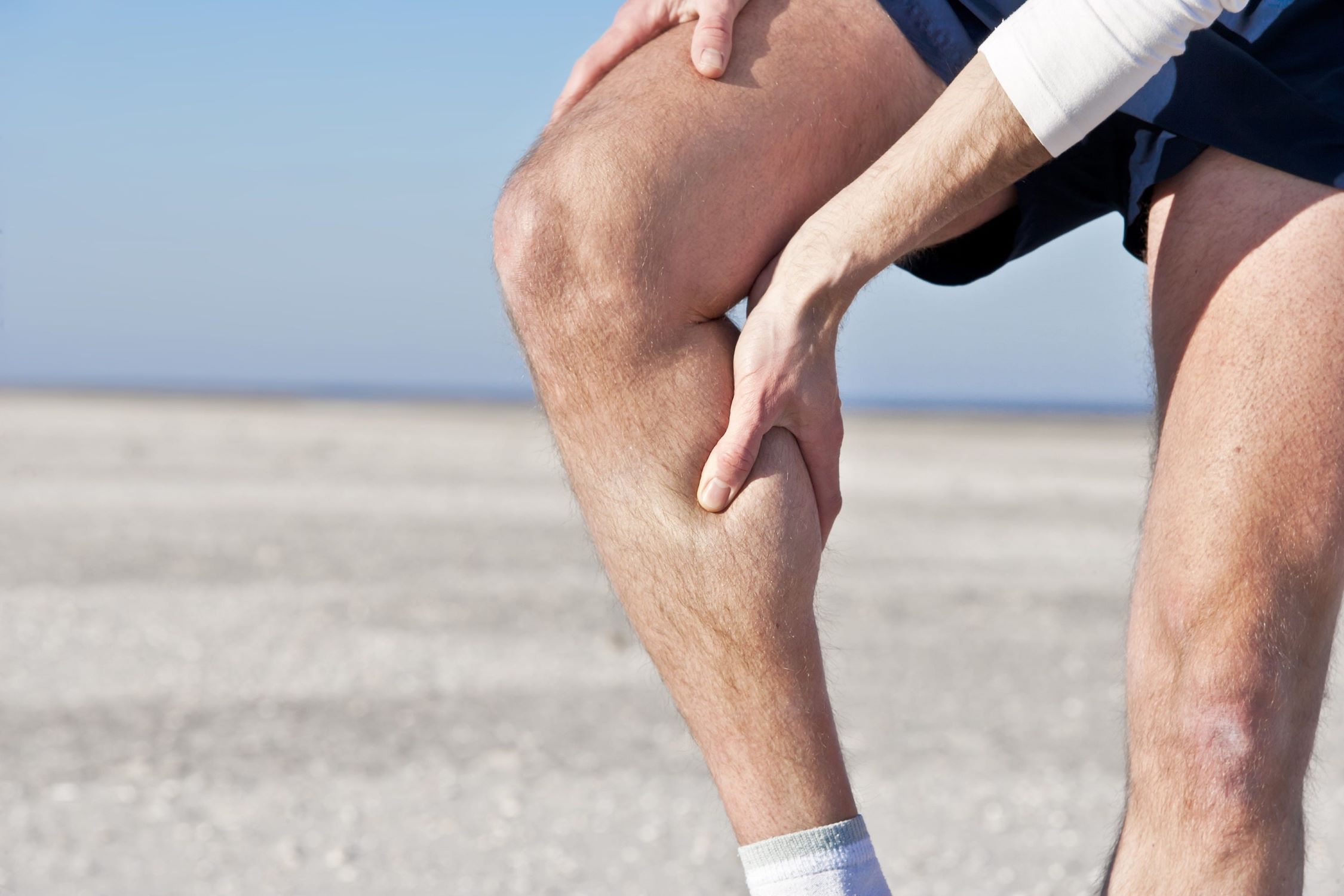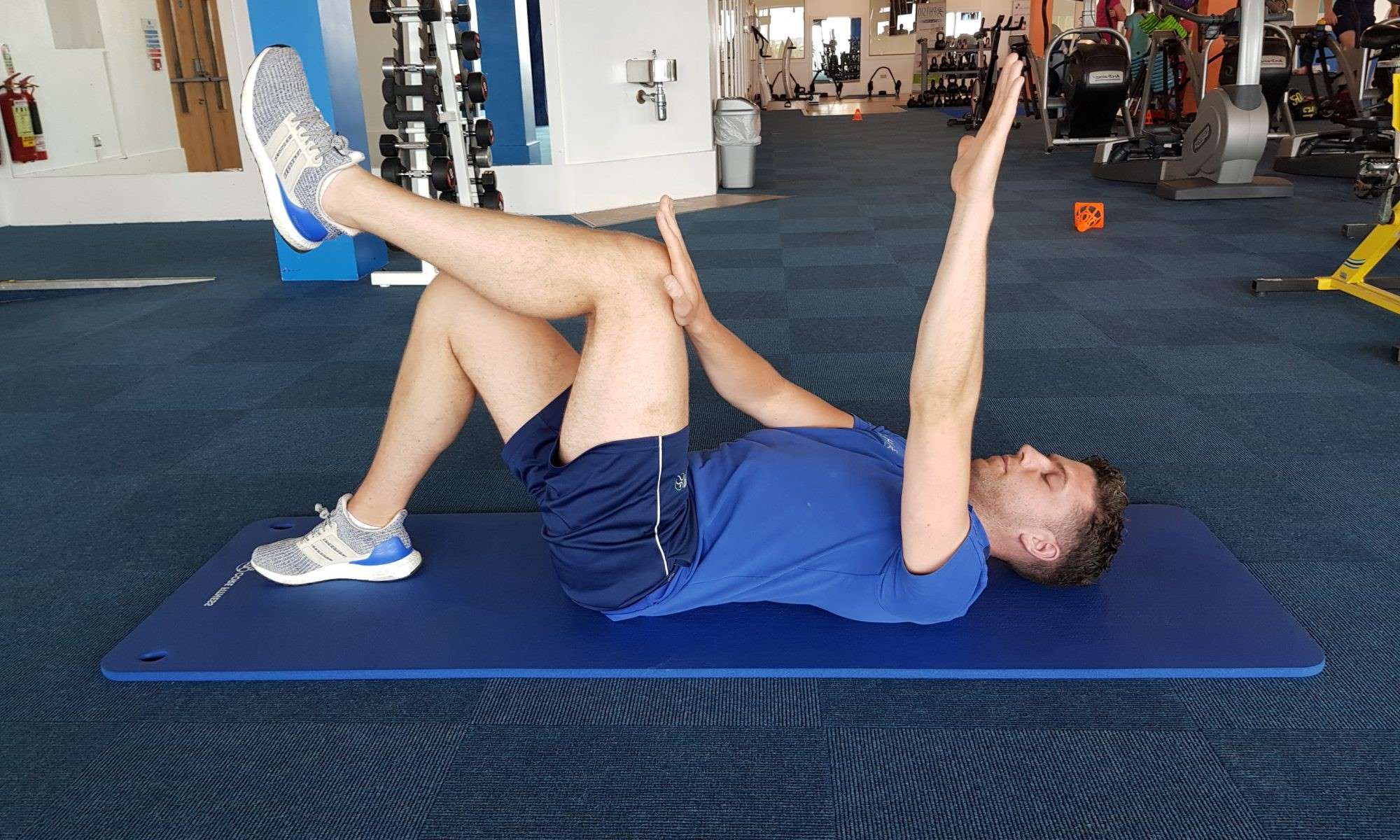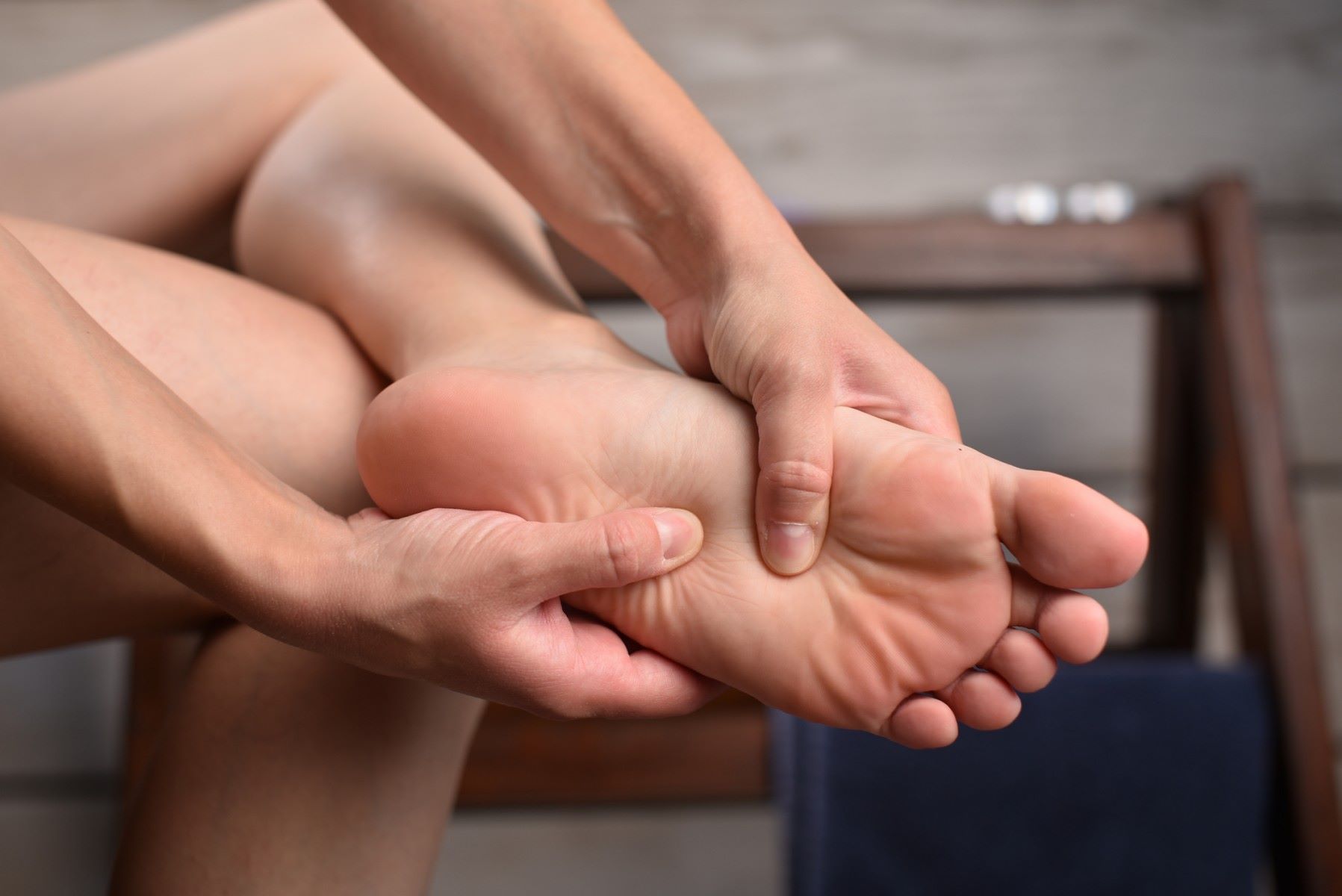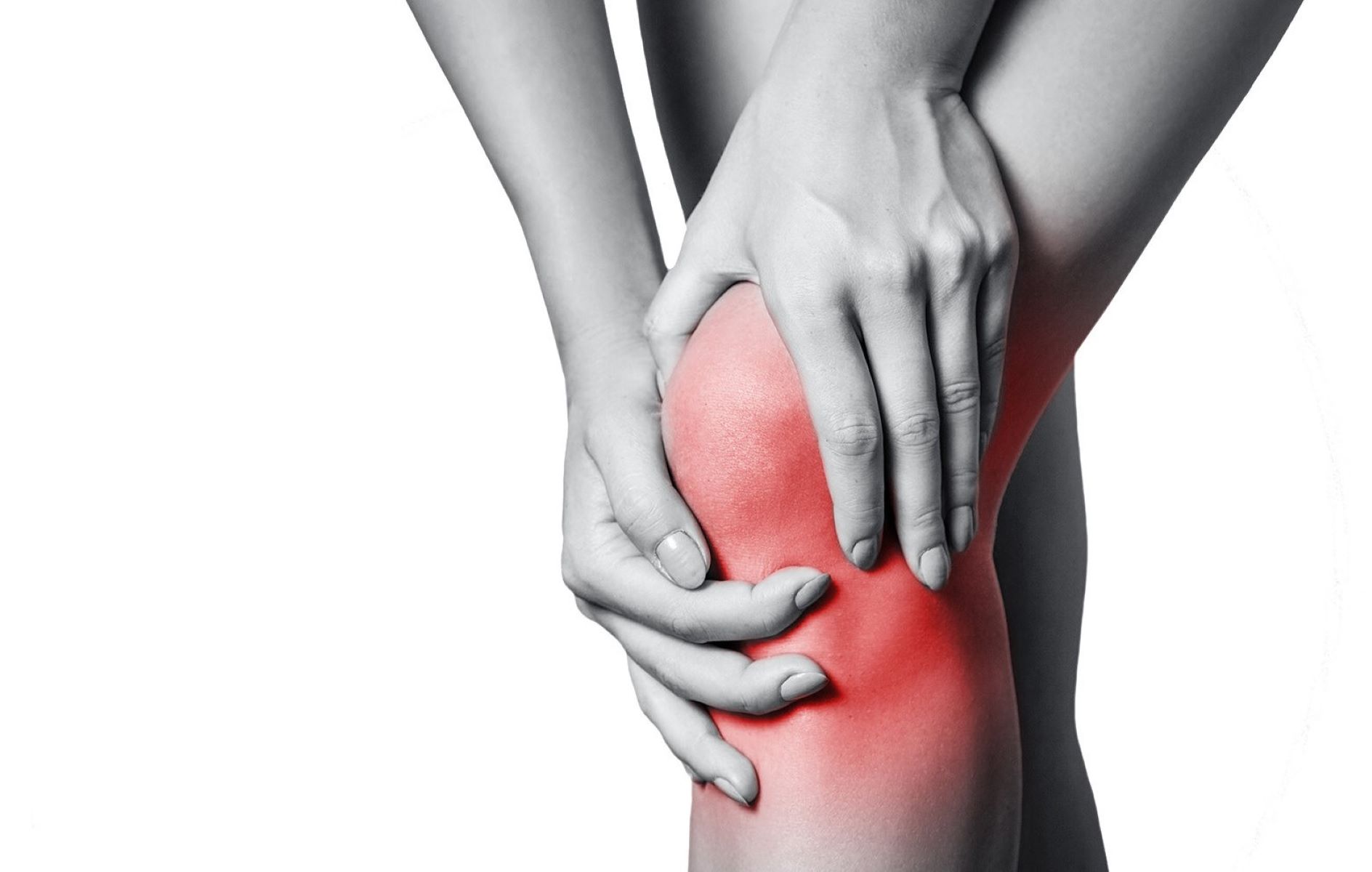Home>Health & Nutrition>Injury Prevention>Understanding The Causes Of Quad Cramps In Marathons


Injury Prevention
Understanding The Causes Of Quad Cramps In Marathons
Published: February 24, 2024
Learn how to prevent quad cramps during marathons with our comprehensive guide on injury prevention. Understand the causes and take steps to protect yourself.
(Many of the links in this article redirect to a specific reviewed product. Your purchase of these products through affiliate links helps to generate commission for Therunningadvisor.com, at no extra cost. Learn more)
Table of Contents
Introduction
Quad cramps during marathons can be a frustrating and painful experience for runners. These sudden, involuntary contractions of the quadriceps muscles can significantly hinder performance and lead to discomfort. Understanding the causes of quad cramps is crucial for both preventing and managing this issue. In this comprehensive guide, we will delve into the various factors that contribute to quad cramps during marathons, shedding light on the role of dehydration, overexertion, electrolyte imbalance, muscle fatigue, poor nutrition, and inadequate warm-up. By gaining insight into these factors, runners can take proactive measures to minimize the risk of quad cramps and optimize their marathon experience. Let's explore the intricate interplay of physiological and environmental factors that can lead to quad cramps, empowering runners with the knowledge they need to conquer this challenge.
The Role of Dehydration
Dehydration plays a pivotal role in the onset of quad cramps during marathons. As runners push their limits, they often overlook the critical aspect of maintaining adequate hydration levels. Dehydration occurs when the body loses more fluids than it takes in, leading to an imbalance that can have detrimental effects on muscle function.
During a marathon, the body undergoes intense physical exertion, causing it to sweat profusely. This excessive sweating, if not replenished with sufficient fluids, can result in dehydration. When the body is dehydrated, the muscles are deprived of essential fluids, impairing their ability to function optimally. The quadriceps, being one of the primary muscle groups engaged during running, are particularly susceptible to the effects of dehydration.
Furthermore, dehydration can lead to an imbalance in electrolytes, such as sodium and potassium, which are crucial for muscle contraction and relaxation. This imbalance can disrupt the normal physiological processes within the muscles, making them more prone to cramping.
In addition to the direct impact on muscle function, dehydration can also hinder the body's ability to regulate its core temperature. As the body overheats due to inadequate fluid intake, the risk of muscle cramps, including quad cramps, significantly increases.
Runners must prioritize hydration before, during, and after a marathon to mitigate the risk of dehydration-induced quad cramps. Implementing a well-structured hydration plan, which includes regular intake of water and electrolyte-rich fluids, can help maintain optimal fluid balance and support muscle function throughout the race.
By understanding the pivotal role of dehydration in triggering quad cramps, runners can take proactive measures to prioritize hydration, thereby minimizing the risk of experiencing this debilitating issue during marathons.
The Impact of Overexertion
Overexertion during a marathon can have profound implications for the onset of quad cramps. As runners push their physical limits, the muscles, including the quadriceps, are subjected to intense and prolonged stress, increasing the likelihood of cramping.
The repetitive and high-impact nature of running places significant strain on the quadriceps muscles. Overexertion exacerbates this strain, leading to muscle fatigue and diminished performance. When the muscles are pushed beyond their capacity, they become more susceptible to involuntary contractions, commonly known as cramps.
Furthermore, overexertion can lead to the accumulation of metabolic by-products, such as lactic acid, within the muscles. During intense physical activity, the body's demand for energy surpasses its ability to supply oxygen to the muscles, resulting in the anaerobic breakdown of glucose and the production of lactic acid. This buildup of lactic acid contributes to muscle fatigue and can trigger cramping in the quadriceps and other muscle groups.
The impact of overexertion extends beyond the physical realm, encompassing mental and emotional aspects as well. Pushing the body to its limits can lead to heightened stress and anxiety, which can manifest as tension within the muscles. This heightened state of arousal can disrupt the neuromuscular coordination, increasing the likelihood of quad cramps during a marathon.
Moreover, overexertion can compromise the body's ability to maintain proper form and technique while running. As fatigue sets in, runners may unknowingly alter their gait and posture, placing uneven stress on the quadriceps and other muscles. This deviation from optimal running mechanics can contribute to muscle imbalances and trigger quad cramps.
To mitigate the impact of overexertion on quad cramps, runners should prioritize adequate training and conditioning. Gradually increasing the intensity and duration of training sessions can help the muscles adapt to the demands of marathon running, reducing the risk of overexertion-induced cramps. Additionally, incorporating recovery periods and cross-training activities can support muscle recovery and overall performance, minimizing the detrimental effects of overexertion.
By recognizing the profound impact of overexertion on quad cramps, runners can adopt a holistic approach to training and race preparation, empowering themselves to conquer the challenges posed by overexertion and optimize their marathon experience.
The Importance of Electrolyte Imbalance
Electrolyte imbalance plays a critical role in the development of quad cramps during marathons. Electrolytes, such as sodium, potassium, calcium, and magnesium, are essential for maintaining proper muscle function and facilitating nerve impulses. When the delicate balance of these electrolytes is disrupted, the muscles, including the quadriceps, become more susceptible to cramping.
During a marathon, the body undergoes significant fluid loss through sweat, leading to the depletion of essential electrolytes. As the concentration of electrolytes in the body becomes imbalanced, the normal physiological processes within the muscles are compromised. This imbalance can disrupt the intricate interplay between nerve signals and muscle contractions, increasing the likelihood of quad cramps.
Potassium, in particular, plays a pivotal role in muscle function. It is responsible for regulating muscle contractions and supporting proper nerve transmission. When potassium levels are depleted, the muscles may experience heightened excitability, leading to involuntary contractions and cramping. Similarly, sodium and calcium are crucial for muscle contraction and relaxation, and their imbalance can disrupt the coordinated interplay of muscle fibers, predisposing the quadriceps to cramping.
Furthermore, magnesium deficiency can exacerbate the risk of quad cramps. Magnesium is involved in energy metabolism and muscle relaxation, and its inadequacy can lead to increased muscle irritability and hyperexcitability, contributing to the onset of cramps.
The impact of electrolyte imbalance extends beyond muscle function, encompassing overall performance and well-being during a marathon. Runners experiencing electrolyte imbalance may encounter symptoms such as muscle weakness, fatigue, and diminished endurance, all of which can hinder their ability to maintain pace and form, increasing the risk of quad cramps.
To address the importance of electrolyte imbalance in preventing quad cramps, runners should prioritize adequate electrolyte replenishment during training and racing. Incorporating electrolyte-rich fluids, such as sports drinks or electrolyte tablets, can help maintain the optimal balance of electrolytes in the body, supporting muscle function and minimizing the risk of cramping.
By recognizing the significance of electrolyte balance in the prevention of quad cramps, runners can implement targeted strategies to ensure proper electrolyte replenishment, empowering themselves to optimize their marathon performance and minimize the impact of electrolyte imbalance on muscle function.
The Influence of Muscle Fatigue
Muscle fatigue exerts a profound influence on the occurrence of quad cramps during marathons. As runners cover extensive distances, the sustained and repetitive nature of the activity places significant strain on the quadriceps and other muscle groups. Over time, this prolonged exertion leads to muscle fatigue, which can manifest as a key contributor to the onset of quad cramps.
During a marathon, the quadriceps muscles are continuously engaged to propel the body forward, absorb impact forces, and maintain stability. This sustained activity depletes the energy stores within the muscles, leading to a decline in their capacity to generate force and sustain optimal performance. As muscle fatigue sets in, the coordination and synchronization of muscle fibers become compromised, increasing the susceptibility of the quadriceps to involuntary contractions and cramping.
Moreover, the accumulation of metabolic by-products, such as lactic acid, within fatigued muscles can further exacerbate the risk of quad cramps. As the body resorts to anaerobic energy production to meet the heightened demands of marathon running, the breakdown of glucose without sufficient oxygen supply leads to the production of lactic acid. This buildup of lactic acid contributes to muscle fatigue and disrupts the normal physiological processes within the quadriceps, making them more prone to cramping.
Additionally, muscle fatigue can lead to altered biomechanics and running form, placing undue stress on the quadriceps. As the muscles tire, runners may experience a decline in their ability to maintain proper posture and gait, leading to compensatory movements that place excessive strain on specific muscle groups. This deviation from optimal running mechanics can create imbalances within the quadriceps, increasing the likelihood of cramping during the marathon.
Furthermore, the mental and emotional toll of muscle fatigue cannot be overlooked. As the body experiences fatigue, runners may encounter heightened levels of mental stress and perceived exertion, which can further exacerbate muscle fatigue and increase the risk of quad cramps. The mental aspect of fatigue can influence neuromuscular coordination, potentially leading to irregular muscle firing patterns and heightened susceptibility to cramping.
To address the influence of muscle fatigue on quad cramps, runners should prioritize comprehensive training programs that incorporate strategies to enhance muscular endurance and fatigue resistance. Implementing targeted strength training, cross-training activities, and gradual mileage buildup can help condition the quadriceps and other muscles to withstand the demands of marathon running, reducing the impact of muscle fatigue on the occurrence of quad cramps.
By recognizing the intricate influence of muscle fatigue on quad cramps, runners can adopt proactive measures to bolster muscular endurance, optimize running mechanics, and mitigate the risk of cramping, empowering themselves to conquer the challenges posed by muscle fatigue and enhance their marathon performance.
The Connection to Poor Nutrition
The connection between poor nutrition and the occurrence of quad cramps during marathons is a significant yet often overlooked aspect of runners' performance. Nutrition serves as the foundation for overall health and plays a pivotal role in supporting muscular function, energy production, and recovery. When runners neglect the importance of proper nutrition, they inadvertently expose themselves to an increased risk of experiencing quad cramps during marathons.
Inadequate intake of essential nutrients, including carbohydrates, proteins, fats, vitamins, and minerals, can compromise the body's ability to meet the demands of marathon running. Carbohydrates serve as the primary fuel source for endurance activities, providing the necessary energy for muscle contractions and sustained performance. Insufficient carbohydrate intake can lead to depleted glycogen stores within the muscles, diminishing their capacity to function optimally and increasing the likelihood of quad cramps.
Furthermore, inadequate protein consumption can hinder muscle repair and recovery, prolonging the recovery process after intense physical exertion. Proteins play a crucial role in muscle tissue repair and growth, and their deficiency can lead to compromised muscle function and heightened susceptibility to cramping.
The impact of poor nutrition extends beyond macronutrients, encompassing essential micronutrients such as vitamins and minerals. Deficiencies in key electrolytes, including potassium, magnesium, and calcium, can disrupt muscle function and increase the risk of cramping. Additionally, inadequate hydration, often stemming from poor nutritional habits, can lead to dehydration, further exacerbating the susceptibility to quad cramps.
Moreover, the timing and composition of pre-race and intra-race nutrition can significantly influence the occurrence of quad cramps. Inadequate pre-race fueling can lead to premature depletion of energy stores, while improper intra-race nutrition can disrupt the delicate balance of electrolytes and energy substrates, predisposing the quadriceps to cramping.
To address the connection between poor nutrition and quad cramps, runners must prioritize a well-rounded and balanced approach to nutrition. This includes consuming a variety of nutrient-dense foods to meet the body's energy and nutrient requirements, strategically timing pre-race and intra-race nutrition to support optimal performance, and maintaining adequate hydration levels to mitigate the risk of dehydration-induced cramping.
By recognizing the profound impact of nutrition on marathon performance and the occurrence of quad cramps, runners can implement targeted nutritional strategies to optimize their fueling and recovery, empowering themselves to minimize the influence of poor nutrition on the risk of cramping and enhance their overall marathon experience.
The Effect of Inadequate Warm-Up
The effect of inadequate warm-up on the occurrence of quad cramps during marathons cannot be overstated. A proper warm-up serves as a crucial preparatory phase that primes the body for the physical demands of running a marathon. When runners neglect or rush through the warm-up process, they expose themselves to an increased risk of experiencing quad cramps, hampering their performance and overall marathon experience.
A comprehensive warm-up routine serves multiple essential functions, including increasing muscle temperature, enhancing blood flow to the working muscles, improving joint flexibility, and mentally preparing the body for the impending physical exertion. These preparatory measures are instrumental in optimizing muscle function and reducing the likelihood of cramping during the marathon.
Inadequate warm-up can lead to suboptimal muscle readiness, leaving the quadriceps and other muscle groups ill-prepared for the rigors of marathon running. Without adequate muscle temperature elevation and blood flow enhancement, the muscles may experience heightened susceptibility to cramping, particularly during the initial stages of the race when the body transitions from a resting state to intense physical activity.
Moreover, a proper warm-up facilitates the activation of neuromuscular pathways, enhancing the coordination and synchronization of muscle contractions. When runners forego or skimp on the warm-up, the neuromuscular system may not be adequately primed for the intricate demands of marathon running, potentially leading to irregular muscle firing patterns and heightened risk of quad cramps.
Furthermore, inadequate warm-up can impede the body's ability to achieve optimal running mechanics and posture, increasing the strain on the quadriceps and other muscles. Without proper joint flexibility and range of motion, runners may experience compromised gait and form, placing uneven stress on specific muscle groups, including the quadriceps. This deviation from optimal running mechanics can contribute to muscle imbalances and heightened susceptibility to cramping.
To address the effect of inadequate warm-up on quad cramps, runners should prioritize a structured and comprehensive warm-up routine that encompasses dynamic stretching, light cardiovascular activity, and neuromuscular activation exercises. By dedicating sufficient time and attention to the warm-up phase, runners can optimize muscle readiness, enhance neuromuscular coordination, and minimize the risk of experiencing quad cramps during the marathon.
By recognizing the pivotal role of a thorough warm-up in mitigating the risk of quad cramps, runners can empower themselves to prioritize this essential preparatory phase, optimizing their muscle function and overall marathon performance.
Conclusion
In conclusion, the occurrence of quad cramps during marathons is influenced by a myriad of factors, ranging from dehydration and overexertion to electrolyte imbalance, muscle fatigue, poor nutrition, and inadequate warm-up. Understanding the intricate interplay of these factors is crucial for runners seeking to prevent and manage quad cramps, thereby optimizing their marathon experience.
Dehydration emerges as a significant contributor to quad cramps, highlighting the importance of maintaining optimal hydration levels before, during, and after a marathon. By prioritizing a well-structured hydration plan and incorporating electrolyte-rich fluids, runners can mitigate the risk of dehydration-induced cramping, supporting optimal muscle function and overall performance.
Overexertion exerts a profound influence on the onset of quad cramps, underscoring the need for comprehensive training programs that focus on enhancing muscular endurance and fatigue resistance. By gradually increasing the intensity and duration of training sessions and incorporating recovery periods, runners can bolster their capacity to withstand the demands of marathon running, reducing the impact of overexertion on the occurrence of quad cramps.
Electrolyte imbalance emerges as a critical factor in the development of quad cramps, emphasizing the significance of proper electrolyte replenishment. By incorporating electrolyte-rich fluids and addressing deficiencies in key electrolytes, runners can support optimal muscle function and minimize the risk of cramping during marathons.
Muscle fatigue plays a pivotal role in the occurrence of quad cramps, highlighting the need for targeted strategies to enhance muscular endurance and recovery. By implementing comprehensive training programs that focus on conditioning the quadriceps and other muscles to withstand the rigors of marathon running, runners can mitigate the impact of muscle fatigue on the onset of quad cramps.
The connection between poor nutrition and quad cramps underscores the importance of a well-rounded and balanced approach to nutrition. By prioritizing nutrient-dense foods, strategic pre-race and intra-race nutrition, and adequate hydration, runners can optimize their fueling and recovery, minimizing the influence of poor nutrition on the risk of quad cramps.
The effect of inadequate warm-up on quad cramps emphasizes the need for a structured and comprehensive warm-up routine. By dedicating sufficient time and attention to the warm-up phase, runners can optimize muscle readiness, enhance neuromuscular coordination, and minimize the risk of experiencing quad cramps during marathons.
In essence, by gaining insight into the causes of quad cramps and implementing targeted preventive measures, runners can empower themselves to conquer this challenge, optimize their marathon performance, and enhance their overall running experience.















